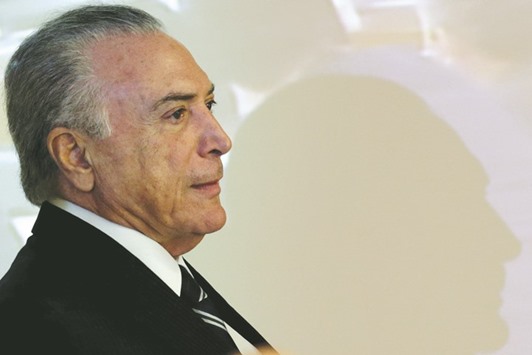The Brazilian government sees no alternative to its pension reform proposal and any changes would distort a plan needed for the recovery of Latin America’s biggest economy, Finance Minister Henrique Meirelles said.
In an interview with Reuters, Meirelles said the government would not negotiate changes to its proposed minimum retirement age of 65.
“In principle we don’t have a plan B. We are not working with other alternatives because this plan was very well thought out,” Meirelles said. “This proposal is the solution and any changes to it will distort the plan.”
The pension reform to reduce costly retirement benefits is at the heart of Meirelles’ austerity drive to plug a widening budget deficit and pull the economy out of its worst recession in more than a century.
Meirelles added that the government was not open to changing the entry point for the new pension system.
The government plans to include all male workers under 50 years of age in the new program, with transition rules for those older. The threshold for women is 45 years of age.
Workers unions and some lawmakers from President Michel Temer’s alliance in Congress have demanded changes to the unpopular reform that the government expects to approve later this year.
Brazil does not currently have a minimum age for retirement in what is considered one of the world’s most generous pension systems.
Meirelles also kept a hard stance on Rio de Janeiro, which is negotiating a fiscal bailout deal with the government.
The minister said the state would not receive additional loans until Congress passed a bill demanding Rio to freeze wage hikes and take other austerity measures to shore up its finances.
Asked about growing market expectations of a possible reduction in Brazil’s inflation target, Meirelles said the government would carefully analyse whether or not to cut it for 2019 when a decision is due in June. He said the government would seek to anchor expectations without “necessarily demanding a bigger effort from the central bank.”
Central bank chief Ilan Goldfajn last month said Brazil’s inflation target should gradually fall from the current 4.5% in the long run to more normal levels seen in other major emerging economies.
Most analysts in a Reuters poll forecast that process would start in 2019 as inflation expectations have fallen more rapidly than expected.

Brazil’s President Michel Temer arrives for a meeting with the Pension Reform Commission at the Planalto Palace in Brasilia, Brazil.
